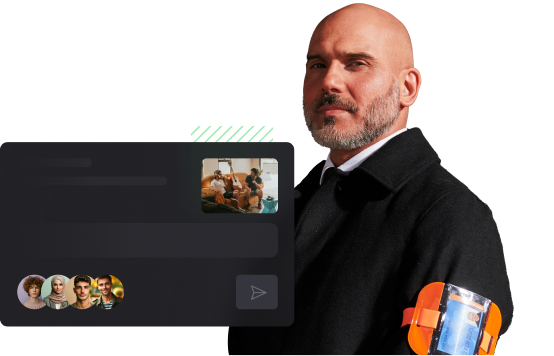If you are at all career-minded and want to get on in the Security Industry, you have probably already heard of CPD, but what is it, and why should you participate?
CPD means Continuing Professional Development. Quite simply, it involves participating in, and recording, your security-related extracurricular activities. Anything that will expand your knowledge, expose you to new ideas and practices, or promote the sector will be a type of CPD.
Forms of CPD
This can take many forms but will include things like:
- Reading security industry magazines or online blogs. I may be biassed, but the GuardPass blogs are informative and useful.
- Attending security events. (IFSEC, International Security Expo, The Security Event, Security Twenty Events, etc.)
- Attending security seminars, networking events, conferences, or informative meetings.
- Writing award nominations.
- Publishing security-related articles.
- Participating in most forms of training. Have a look at a whole library of E-learning courses.
- Obtaining new security qualifications.
- Taking part in a mentorship scheme. (As Mentor or Mentee.)
- Speaking at security events.
- Participating in online security webinars, and much more…….
The Value of CPD
As you can see, the very best part of CPD is that it can be achieved at no cost and using a time frame that suits you. as has been noted, most events are free to attend. Most security magazines are free to read online. There is a lot of free online training, and most webinars cost nothing. It also costs nothing but time and thought to write an article on a subject that motivates you and submit it to a trade magazine. You get the idea.
All of these activities help expand your industry knowledge and keep you updated on trends, legislation, and best practices. Simply put, this is why CPD is considered so important.
Formalising Your CPD Activities
There are several organisations that allow you to formalise your activities. Moreover, they tend to allocate points to different forms of learning, based on the level of professional value they represent. This provides a framework allowing you to record and evaluate these activities, with the goal of reaching a preset points target every year.
Furthermore, reaching this point target in any 12-month period demonstrates your commitment to personal and professional development, and several organisations will award you with a certificate of annual CPD completion, upon receipt of a spreadsheet detailing your efforts. Occasionally, you may be asked to provide evidence of your CPD activities, so keep hold of those event tickets, articles, photos of magazines you have read, and the like, to save you hours of wading through old emails for event bookings or confirmations.
The Value of CPD to Employers
Evidently, proof of annual CPD completion is becoming highly valued by employers who are waking up to the engagement and motivation that this achievement represents, so always let your company have a copy of your certificates for their information. Your bosses will be impressed.
Certainly, i recommend the CPD scheme run by the UK’s Security Institute. It is free to participate in and, surprisingly, is open to non-members. They will provide you with a spreadsheet with a comprehensive list of activities and the points that they allocate to each. Find out more and download their CPD toolkit here: https://security-institute.org/cpd/
Summary
To sum up, continuing Professional Development is increasingly essential to a security industry professional’s career progression. From Security Officers to major company CEOs, everybody is encouraged to take part, and some of the top membership organisations will not allow a professional into the higher ranks (fellowships, etc) unless participation can be proven.
Regardless of the advantages this may give you in certain membership organisations, CPD is always an excellent idea as, at the very least, you will be gaining knowledge and keeping abreast of developments within the industry.
….. and knowledge is power.


Leave a Reply